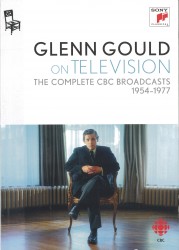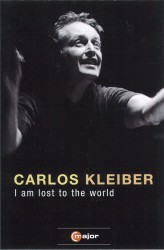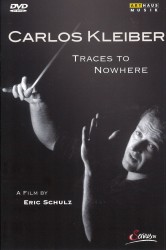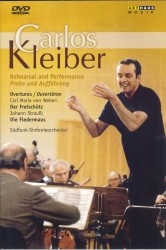OLD WINE IN NEW BOTTLES – Fine Old Recordings Re-released - November 2011
The 1950s, ‘60s and ‘70s were the halcyon days of the CBC. During those years the Corporation produced programs of the highest calibre for both their radio and television networks. All the Arts were covered: theatre, ballet, opera, etc. including live concerts, recitals and intelligent and informative talk shows. In those years, Glenn Gould developed from a young pianist of obvious talent into the world famous re-interpreter of Bach and Beethoven and others and, from time to time, he shared his views with the TV audience.
 SONY has issued a 10 DVD set of Glenn Gould on Television – The Complete CBC Broadcasts 1954-1977 (886979 52109). This collection could correctly be dubbed The Wit and Wisdom of Glenn Gould, for it contains every one of those original, well-prepared programmes that centered around Gould playing music close to his heart. From 1961 performances were preceded by Gould’s spoken introduction and elaboration. I hurried into the set to watch disc five containing the 1966 Humphrey Burton Interviews in which Gould very persuasively argues for his radical, in some degree or another, performances of Bach and Beethoven. On the second disc of the Burton interviews, broadcast a few weeks later, Gould argues the case for Arnold Schoenberg as the composer whose music he places above Bartók, Stravinsky, Shostakovich, or anyone else in the 20th century (up 1966, of course). Finally, Gould chooses the music of Richard Strauss to discuss and find a place for in 20th century music.
SONY has issued a 10 DVD set of Glenn Gould on Television – The Complete CBC Broadcasts 1954-1977 (886979 52109). This collection could correctly be dubbed The Wit and Wisdom of Glenn Gould, for it contains every one of those original, well-prepared programmes that centered around Gould playing music close to his heart. From 1961 performances were preceded by Gould’s spoken introduction and elaboration. I hurried into the set to watch disc five containing the 1966 Humphrey Burton Interviews in which Gould very persuasively argues for his radical, in some degree or another, performances of Bach and Beethoven. On the second disc of the Burton interviews, broadcast a few weeks later, Gould argues the case for Arnold Schoenberg as the composer whose music he places above Bartók, Stravinsky, Shostakovich, or anyone else in the 20th century (up 1966, of course). Finally, Gould chooses the music of Richard Strauss to discuss and find a place for in 20th century music.
The earliest surviving video of Gould dates from December 1954 in which we hear and see him playing the first movement of Beethoven’s first piano concerto. On the same disc we jump to February 1957 and find him conducting an orchestra accompanying Maureen Forrester singing Urlicht. Sehr feierlich, aber schlicht: “O Roschen rot!” from the Mahler second symphony followed by Bach from 1957 and 1958 and from 1960 Beethoven’s “Tempest” sonata. Next, from 1961 The Eroica Variations and the third cello sonata with Leonard Rose, both of which are introduced and analysed by Mr. Gould.
Throughout these 10 DVDs, although he painstakingly prepared his spoken comments he never comes across as a fussy pedant or a know-it-all. But, as we know, he did know it all. The mind boggles when faced with the breadth of his interests and passions. We find him working and playing with Yehudi Menuhin (1966), then the famous 1970 bicentennial concert when he stepped in at a moment’s notice to sub for Michelangeli playing the Emperor Concerto with the TSO under Karel Ancerl. There really is too much wonderful music and talk about music in this set to write about here. Other artists seen or heard in this collection include James Campbell, Roxolana Roslak, Boris Brott, Adele Armin, Suzanne Schulman, The Orford String Quartet, Russell Oberlin, Julius Baker, Oscar Shumsky, Lois Marshall, Elizabeth Benson-Guy, Gordon Wry, Vladimir Golschmann, Albert Pratz, Zubin Mehta and many others. The Judith Pearlman film The Idea of the North, narrated by Gould is here, too. This is a unique collection of unique performances and commentaries. Whether you remember Glenn Gould or not really doesn’t matter.
Although available throughout the rest of the world, curiously, Sony Canada apparently declined to release the quite recent collection of Gould’s recordings of 12 Beethoven Sonatas and all five Piano Concertos. Newly re-mastered in an attractive six CD set at super-budget price, it would also have been a natural tie-in to the DVD set where many of them are referred to or discussed.
 I am lost to the world is the title of an extraordinarily moving DVD (Cmajor DVD 705608) which attempts, successfully so, to outline the life and career of Carlos Kleiber and perhaps understand why he was predictably unpredictable. He was well known for not showing up or walking out of rehearsals, not showing up for concerts, and generally eccentric, unprofessional behaviour. By the end of this barely sixty minute presentation the viewer can somehow empathise with him and understand him... well, not really but get very close or imagine that you do. We see him as the son of the exalted conductor, Erich Kleiber who was, as we have been told elsewhere, also moody and easily offended. There can be no doubt that the son outdid the father in his quest for perfection (as he saw it) in the finished performance. He abhorred the press and the glitz that went with being a superstar. He is seen in rehearsals and in a non-commercial video of what seems to be a final run-through of Tristan at Bayreuth. The intensity is electrifying. Players from the Vienna Philharmonic and others give us a fair idea of the man, illustrated by videos of rehearsals and performances. His stick technique and his whole “body technique” were exuberant and flamboyant, communicating to the players exactly what he wanted to hear. It is a revelation for us in the audience to see what the musicians saw. The title of this DVD, Ich bin der Welt elt abhanden gekommen (I am lost to the World) is the title of the third song from Mahler’s Rückert Lieder.
I am lost to the world is the title of an extraordinarily moving DVD (Cmajor DVD 705608) which attempts, successfully so, to outline the life and career of Carlos Kleiber and perhaps understand why he was predictably unpredictable. He was well known for not showing up or walking out of rehearsals, not showing up for concerts, and generally eccentric, unprofessional behaviour. By the end of this barely sixty minute presentation the viewer can somehow empathise with him and understand him... well, not really but get very close or imagine that you do. We see him as the son of the exalted conductor, Erich Kleiber who was, as we have been told elsewhere, also moody and easily offended. There can be no doubt that the son outdid the father in his quest for perfection (as he saw it) in the finished performance. He abhorred the press and the glitz that went with being a superstar. He is seen in rehearsals and in a non-commercial video of what seems to be a final run-through of Tristan at Bayreuth. The intensity is electrifying. Players from the Vienna Philharmonic and others give us a fair idea of the man, illustrated by videos of rehearsals and performances. His stick technique and his whole “body technique” were exuberant and flamboyant, communicating to the players exactly what he wanted to hear. It is a revelation for us in the audience to see what the musicians saw. The title of this DVD, Ich bin der Welt elt abhanden gekommen (I am lost to the World) is the title of the third song from Mahler’s Rückert Lieder.
 A second documentary on Kleiber, Traces to Nowhere, covers much of the same ground and interviews some of the same witnesses but also others. We learn that he visited Karajan’s grave every time he went to Salzburg. These interviews flesh out the sequence of events and often fill in the gaps between one incident or another and the ensuing behaviour that, to an outsider would appear to be thoughtless and uncalled for (ARTHAUS DVD 101553). Both films take us to Kleiber’s final hours but I am lost to the world left me feeling very sad for him. Both films are recommendable and are complementary. As a footnote... a friend of mine in England, when in the employ of a major record company, received a letter from Kleiber expressing his admiration for, and the earnest desire to conduct, Gilbert and Sullivan.
A second documentary on Kleiber, Traces to Nowhere, covers much of the same ground and interviews some of the same witnesses but also others. We learn that he visited Karajan’s grave every time he went to Salzburg. These interviews flesh out the sequence of events and often fill in the gaps between one incident or another and the ensuing behaviour that, to an outsider would appear to be thoughtless and uncalled for (ARTHAUS DVD 101553). Both films take us to Kleiber’s final hours but I am lost to the world left me feeling very sad for him. Both films are recommendable and are complementary. As a footnote... a friend of mine in England, when in the employ of a major record company, received a letter from Kleiber expressing his admiration for, and the earnest desire to conduct, Gilbert and Sullivan.
 Yet another DVD (running 102 minutes) finds Kleiber rehearsing and performing the overtures to Der Freischütz and Die Fledermaus. Until you have seen it, you cannot imagine the meticulous attention given to even the slightest passing notes and the perfection of the performances where these felicities pass fleetingly by (Arthaus DVD 101063).
Yet another DVD (running 102 minutes) finds Kleiber rehearsing and performing the overtures to Der Freischütz and Die Fledermaus. Until you have seen it, you cannot imagine the meticulous attention given to even the slightest passing notes and the perfection of the performances where these felicities pass fleetingly by (Arthaus DVD 101063).


